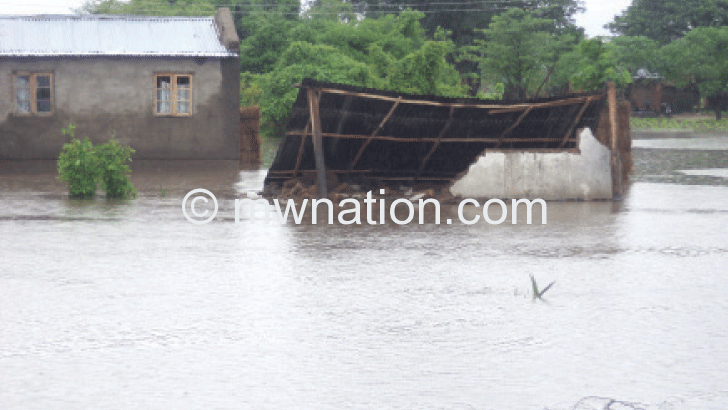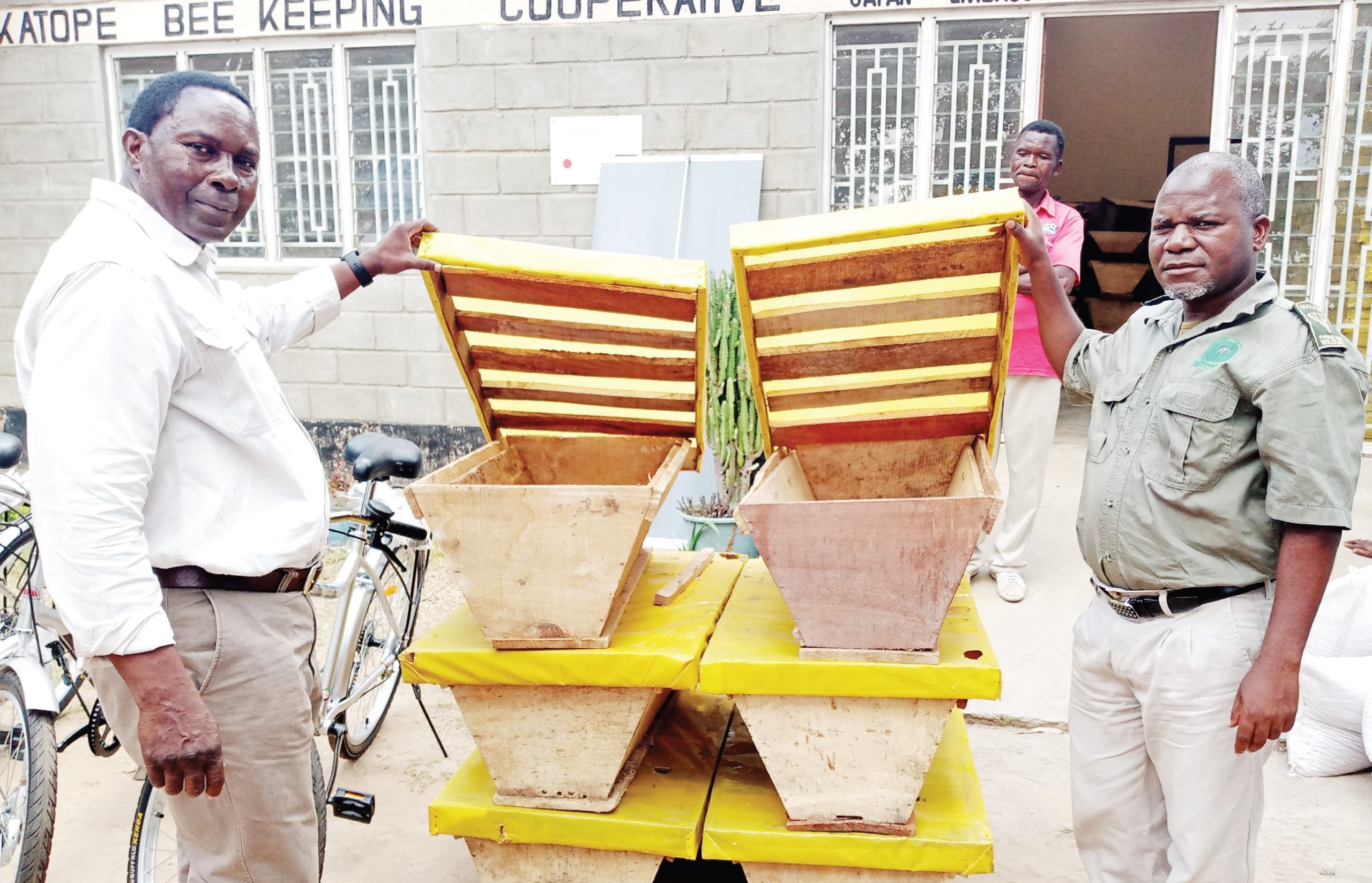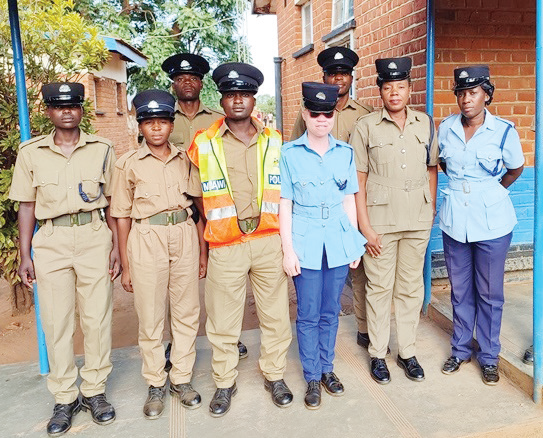15 years on, Irrigation Act still gathering dust
It was a law put in place to provide institutional management of irrigation in Malawi. But 15 years since former President Bakili Muluzi assented it into law on November 30 2001, none of the institutional arrangements the Irrigation Act provided for have been put in place. EPHRAIM NYONDO writes in this first part of the Irrigation Law series.
At 78, Paulo Jekapo, from Traditional Authority Ngabu in Chikwawa should have been spending her ‘second childhood’ with joy, happiness and contentment. She is not.

Jekapo lost four of her five children and, today, she takes care of eight grandchildren. However, over the years, she has never had a problem with taking care of the eight orphans.
“It is this year that has made me vulnerable, weak and realise that I have a big problem,” she says.
Shortage of food at her house is the problem she is referring to. Despite continued erratic rains which bring the double tragedy of floods and drought over the years, it was the 2014/2015 growing season, she says, that has been devastating to her.
Her maize farm was washed away by the raging floods that hit the country’s 15 districts—which the government estimates showed that humanitarian food needs assistance was pegged at $146 million (about K109.8billion) and out of this, as much as $100 million (about K75 billion) was contributed by different partners leaving a shortfall of $46 million (about K34.6billion).
After the floods, she says, she resiliently went back to her farm to plant, only to be slapped in the face by the drought that destroyed almost 40 percent of the crops nationally, according to a Malawi Vulnerability Assessment Committee (Mvac) report.

What Jekapo and the 2.8 million Malawians are suffering today are effects of climate change in Malawi’s agriculture. Erratic rains, which are forces behind floods and droughts, are a direct result of climate change taking its toll on Malawi’s agriculture, says Ellina Kululanga, principal meteorologist in the Department of Climate Change and Meteorological Services.
“Climate change is here to stay because the world around us has changed. We need to teach and challenge our people to adapt to this change, or else we are in for a big trouble,” she says.
As one way of adapting to this change, especially in agriculture, experts have long advocated for turning irrigation agriculture as a way which local people like Jekapo and the 2.8 million Malawians could be saved from the acute food shortage problem they are experiencing today.
Their emphasis does not spring from the blue.
Although Malawi’s agriculture is 95 percent rain-fed, the country blessed with vast expanses of water systems—lakes and rivers—that, collectively, make it well drained for irrigation agriculture. The waters, in fact, cover 21 percent of the country’s 111 480 square kilometres territorial land.
Just look at the figures!
In his keynote address titled ‘50 Years of Irrigated Agriculture in Malawi: Opportunities and Challenges’ during the Civil Society Agriculture Network (Cisanet) national conference in July 2014, Professor Zachary Kasomekera notes that by 2002, the estate sector had 48 135ha, while small scale irrigation had a total of 8 255ha with rice as a predominant crop in small scale irrigation.
He further notes that, over the years, there has been increased irrigated hectarage from 48 135ha for estates in 2002 to 49 340ha in 2012, and 8 255 ha for small holder to 45 637 hectares over the same period—thanks to the treadle pumps technology.
However, despite this increase, studies show only 33 percent of potential irrigable land has been developed thus far. To mean, the great potential of irrigable land at 77 percent, notes Kasomekera, is still undeveloped.
Kasomekera notes that part of the reason is that there was no definite policy document on irrigation until 2000, adding that early irrigation projects were guided by informal river banks irrigation and settlement schemes.
It is against such reasoning that the government, after years of debates, enacted the Irrigation Act in 2001. This Act was in place to provide guidance and institutional framework for managing irrigation in the country.
It consists of 55 sections—divided into 10 parts, viz: Preliminary Provisions; National Irrigation Policy and Development Strategy; Establishment of the Malawi Irrigation Board; Functions and Powers of the Board; Secretariat of the Board; Irrigation Fund; Local Community Participation; Registration of Irrigation Consultants; Offences and Penalties; and Miscellaneous Provisions.
The Act further requires every public officer and any authority in Malawi to comply with the National Irrigation Policy and Development Strategy.
According to the Act, the Malawi Irrigation Board shall advise the government and other stakeholders on policy matters relating to irrigation and drainage and shall also, among other things, approve standards and guidelines for the development and management of irrigation and drainage.
The Irrigation Fund, on the other hand, shall be vested in and administered by the minister. It is established for the development and management of irrigation and drainage.
The Act further provides for local community participation in development and management of irrigation and drainage by allowing the minister to enter into irrigation management agreement with an irrigation management authority.
The agreement, notes the Act, shall provide for a management plan and assistance to be provided by the government.
Not only that.
The Act also provides that no person shall be engaged as an irrigation consultant unless he or she is registered under this Act. The Act also sets out regulation-making powers of the responsible minister.
However, 16 years since it was enacted into law, has the Irrigation Act done any better to help locals like Jekapo to be food secure through entrenching irrigation agriculture in the country?
“What is critical in any Act,” says Happy Kayuni, public policy specialist at Chancellor College, “is to assess the effectiveness of the institutions that this Act, or any other Act, provides to help in implementation.”
The Irrigation Act provides for two critical institutions namely, the Malawi Irrigation Board and, most importantly, the Irrigation Fund.
Unfortunately, 16 years later, these institutions are yet to be put in place. In fact, irrigation consultants continue to register with the Registrar’s office.
In other words, the Irrigation Act has been forgotten, and as way forward, experts note, there is need for more discussions to awaken it up—perhaps it can help Jekapo and the 2.8 million Malawians to be food secure.n
KEY FACTS
Duties of the Board
- Approve standards and guidelines for the development and management of irrigation and drainage.
- Consider and advise on proposals for the enactment of legislation that may affect irrigation and drainage.
- Review progress of the development and management of irrigation and drainage at national level.
- Act as a forum for information sharing.
- Conduct an inquiry into any matter falling within the scope of the functions of the Board.
- Exercise authority affecting registration of irrigation consultants under this Act.
- Promote and maintain cooperation in irrigation and drainage with similar bodies in other countries and with international bodies connected with irrigation and drainage.
Uses of the Irrigation Fund
- Financing, by way of loans or grants, any research or study carried on, by or for the benefit of persons or organisations engaged in irrigation and drainage.
- The acquisition of land, equipment, materials and other assets and the construction of buildings to promote the objects of the Fund.
- Paying the cost of any irrigation scheme which the Minister, on the recommendation of the Board, considers to be in the interest of the development and management of irrigation and drainage.
- Meeting any expenses of the Board and those arising from the establishment and maintenance of the Fund.
- Any purpose which the Minister, on the recommendation of the Board, considers to be in the interest of the objects of the Fund.





